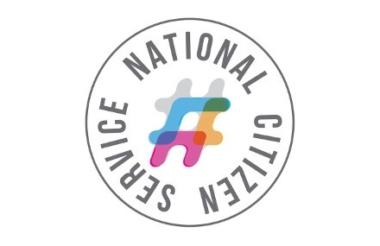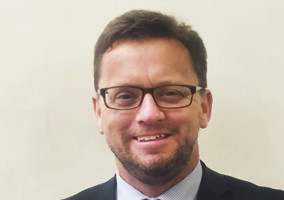An influential committee of MPs has published a highly critical report into the National Citizen Service, and its chair has called on government to carry out a fundamental review before spending any money on the programme.
The Public Accounts Committee, which scrutinises how public money is spent, published its report today after taking evidence earlier this year, and has made eight recommendations for the Department for Culture, Media and Sport and the NCS Trust, the community interest company which runs the NCS.
The committe has been critical of the organisation’s lack of evidence of long-term impact, lack of transparency, high participation targets, the cost per place, and the lack of progress on recovering money paid out for places that were not filled.
MPs also said the NCS Trust had been set up “without appropriate governance arrangements”.
The committee called on the DCMS to devise a plan for measuring the long term outcomes of the NCS and told the NCS trust to become more transparent.
Chair of the committee, Meg Hillier, the Labour MP for Hackney South and Shoreditch, called for a fundamental review of "the way NCS is delivered and its benefits measured" before more public money is committed”.
The report said: “We would expect that basic principles of governance, accountability and transparency should apply to all bodies who are primarily funded by the taxpayer or controlled by government, regardless of their legal form. It is worrying that, despite our previous concerns, some bodies substantively funded by the taxpayer are still not subject to basic principles for managing public money, and that the Cabinet Office has sanctioned this situation.”
It also said it was concerned that the trust might not have the appropriate skills and experience to oversee the project. The report said: “The trust has been expanding its staff numbers rapidly since 2013, but only appointed a ‘chief people officer’ in summer 2016.
“The chief executive of the trust told us that he has no experience running an organisation of this size but has set up a youth organisation and worked with bigger budgets than NCS as a consultant. We were unclear how these roles equated to setting up a project and implementing changes of the scale required.”
Recommendations
PAC made eight recommendations:
- We expect the Department to establish a clear plan, and secure agreement with other government departments where necessary, by September 2017 for how it is going to evaluate the long-term impact of NCS.
- The Department and Trust need to think radically about what meeting the revised [participation] target means for how NCS is provided and works alongside other organisations. We expect to see detailed plans to support achieving the revised participations figures within six months
- In its response to this report the trust should provide us with details of how it will ensure safeguarding will be embedded as it expands.
- The NCS Trust and Department need to develop a robust and complete NCS cost model and publish benchmarking of its costs in advance of the next commissioning round in 2018.
- In its response to this report the Trust should update us on progress with recovering monies paid to providers, in respect of 2016 and previous years. With new provider contracts due next year it must take the opportunity to minimise the risk of paying for unfilled places in future.
- Rather than waiting until it receives a Royal Charter, the NCS Trust should comply with public sector expectations and standards of financial reporting for the current year.
- We expect the Cabinet Office to provide us, within six months, a list of all companies substantially funded or controlled by the government that are not currently required to apply the principles of Managing Public Money, and its plans to regularise their accountability.
- Alongside its response to this report, the Trust should provide us with a timetable and action plan for how it will put in place the governance, leadership and expertise necessary to deliver the expansion.
‘Critical juncture’
Hillier said the programme had "already reached a critical juncture”.
She said that current evidence about the impact on young people “does not in itself justify the level of public spending on the programme, nor demonstrate that NCS in its current form will deliver the proposed benefits to wider society.”
She added that it “is not at all clear why NCS participation costs should be so much higher than those for a voluntary sector organisation such as the Scouts.
“Nor is it clear why the trust, as the recipient of this public money, should apparently be so reluctant to voluntarily disclose financial information such as the salaries of directors.
“This attitude does nothing to build public confidence in an organisation that has lacked discipline in recovering overpayments of taxpayers' money, while running a programme for which there is still no clear evaluation plan.
“If a Bill currently before Parliament becomes law then the trust will become a Royal Chartered public body and will therefore be obliged to comply with basic principles of governance, accountability and transparency.
“But this is no barrier to action. As a body primarily funded by taxpayers, the trust can and should comply now.
“Beyond that, we urge the trust and central government to review fundamentally the way NCS is delivered and its benefits measured before more public money is committed in the programme's next commissioning round."
NCS response
Michael Lynas, chief executive of NCS Trust, said: “NCS Trust welcomes the Public Accounts Committee report which recognises that National Citizen Service has already had a 'real impact' on 300,000 young people – increasing their confidence, connections, life skills and community engagement. We are grateful to the committee for their recommendations. We are always seeking to strengthen NCS, reach more young people, deepen our long-term impact and deliver even greater value for money.
“We share the committee’s view that it is vital to measure the long-term impact of the programme. Four new independent research reports demonstrate that the programme continues to have an impact two years after graduates have completed NCS. New analysis from UCAS Strobe confirms that NCS participants are significantly more likely to get accepted into university.
“Achieving value for taxpayer’s money is of central concern to NCS Trust and government commissioned independent research and NCS Trust commissioned independent research shows between £2.20 and £4.15 of benefits are returned to society for every £1 invested. The vast majority of NCS funding goes to more than 200 local charities and community groups and helps them to build the local infrastructure to attract young people to NCS and deliver life changing programmes. We conduct regular audits to ensure that this funding is being used in an optimal way and have remained within our budget set by government in every year. As the programme grows, we are recommissioning our network allowing us to take advantage of scale efficiencies and new ways of delivery to lower our unit cost, as the report recommends.
“NCS is the fastest growing youth programme in our country for 100 years. As the NCS Bill makes it way through Parliament with cross-party support, we are transitioning to be a Royal Charter body with the appropriate governance, systems and processes to match our scale.
“We are considering all the recommendations in this report carefully and will work closely with the Department for Culture, Media and Sport and our other partners to deliver them and make NCS a normal part of growing up for young people in our country.”
Related articles












